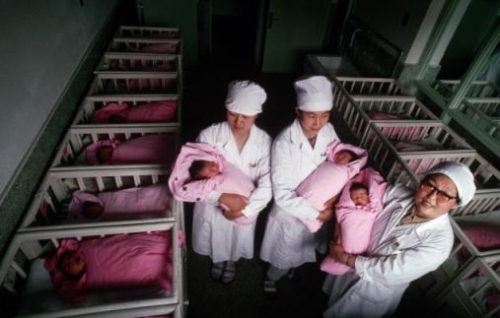
A Chinese firm claims it is getting closer to allowing parents to pick the embryo most likely to succeed.
Researchers believe that 50-80% of what determines IQ could be inherited.
Now a Chinese firm is mapping the genes of people who are gifted in maths in a bid to isolate the genes that make them smarter than the average person.
Shenzhen-based BGI is mapping the genes of math geniuses, and appealing via its web site for more to take part in the controversial study.
B.G.I., formerly called Beijing Genomics Institute, is the world’s largest genetic-research center, and already has an initial batch of 2,000 DNA samples from high-IQ subjects.
Researchers then plan to compare these against a sample from the general population – and hopefully isolate what makes them special.
In theory, this knowledge could then be used to allow parents to pick ‘smart embryos’.
Other divisions of the Chinese giant already offer genetic testing, leading some to speculate it could eventually launch a screening programme for prospective parents.
Researchers believe most children are within 13 IQ points of their parents’ combined average.
However, two or three out of every hundred children turns out to be significantly more intelligent, Stephen Hsu, a researcher on the project, told Wired magazine.
”People believe it’s a controversial topic, especially in the West,’ Bowen Zhao, head of CG, told the Wall Street Journal.
‘That’s not the case in China.’
In fact, China Development Bank, a state bank that lends to government pet projects, has given BGI $1.5 billion, although the firm says it will not turn over its data.
‘Imagine what a couple might pay to ensure that they get the best out of 10 or 50 possible offspring, optimizing over their choice of heritable attributes,” he wrote on his blog, comparing the cost of a Harvard degree or private school with the few thousand dollars it takes to fertilize and implant embryos.
‘There are going to be countries that say this is part of our national health-care service and everyone is doing it,” he told the New Yorker. “And eventually it would become unstoppable, because the countries that initially outlawed it would have to come around. How could they not?”

